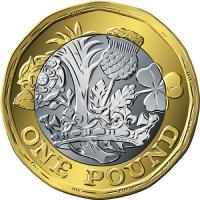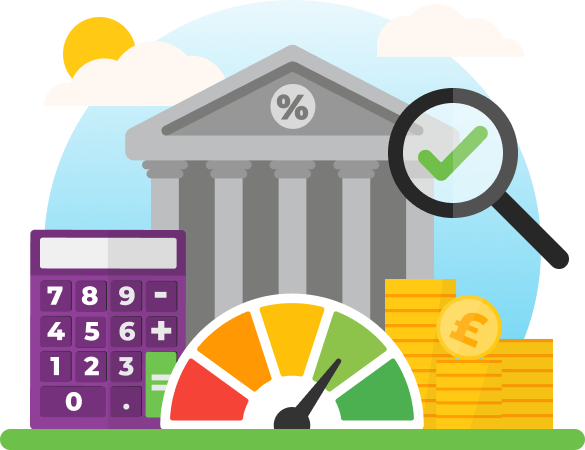When it comes to getting a mortgage, there is a range of different mortgages to choose from, with a multitude of lenders offering various deals and products. Finding a mortgage that suits your individual circumstances is important. As this can be one of the biggest financial decisions in your lifetime, comparing deals carefully can help you make an informed choice.
We explain the different types of mortgage available and break down what each of them offers. This guide provides a general overview of the mortgage deals available and aims to help you understand the options that might be suitable depending on your needs.
Be aware that this guide is for informational use only and does not constitute financial advice.
What are the Types of Mortgages Available in the UK?
With so many types of mortgages available, not to mention the legal and financial jargon, interest rates and small print, it is easy to feel overwhelmed.
Below we’ve listed the different types of mortgages on the market today, including popular options such as fixed-rate and variable, in addition to specialist mortgages like Islamic and Guarantor mortgages.
Variable Rate Mortgage including Discount, Tracker and Capped Rate Mortgages
Fixed-Rate Mortgage
Interest-Only Mortgages
Offset Mortgage
Lifetime Mortgages
95% Mortgages
Cashback Mortgage
Guarantor Mortgages
Islamic Mortgages (compliant with Sharia law)
What is a Variable Rate Mortgage?
With a variable rate mortgage, the interest rate of the mortgage is not fixed. In this case, the interest rate you pay, and therefore your monthly payments, can potentially go up or down each month.
The interest rate will be the lender’s Standard Variable Rate (SVR) which is influenced by the Bank of England base rate. This type of mortgage may not suit those who prefer predictable monthly payments. A variable-rate mortgage can make it harder to budget and plan financially, however, unlike a fixed-rate mortgage, you can benefit when the lender’s SVR drops. Be aware that payments increase if and when the lender’s SVR rises.
There are several different types of variable rate mortgage available and these include:
Lender’s Standard Variable Rate (SVR)
Each mortgage lender will have a standard variable rate (SVR). The lender can change this rate whenever it wants to, although most changes are in line with changes to the Bank of England base rate.
The most common reason you’ll be on a lender’s SVR is at the end of a fixed-rate or other mortgage deal. For example, a mortgage might be fixed at 2% for two years then revert to the lender’s SVR, which is usually higher.
In most cases, the SVR will be more than you were paying on the fixed-rate and your payments will go up. Some borrowers choose to remortgage if they find a more competitive deal once their fixed or discount period ends.
To find out more visit: What Is a Standard Variable Rate Mortgage?
Discount Mortgages
A discount mortgage has an interest rate that is set a certain amount below the lender's standard variable rate (SVR). For example, the rate might be the lender’s SVR minus 1%. So if the SVR is 5%, you’ll pay 4% interest. This will usually be for a set period of time; for example, two or five years.
The interest rate can change if the lender changes the SVR. In the example above if the SVR was upped to 5.5%, you’d pay 4.5% interest. But if it was reduced to 4.5%, you’d pay an interest rate of 3.5%. This means your mortgage payment can change from month to month. This potential variability may be a drawback for those who prefer stable, predictable payments.
A discount rate may have a “collar” – a limit to how low the rate can fall below a certain percentage, limiting how much discount you can actually benefit from. Once the discount period ends, you will automatically be transferred to your lender’s SVR. Discount mortgages allow you to benefit from any reductions in your lender’s SVR – but you’ll pay more if the rate increases.
Tracker Mortgages
A Tracker Mortgage is a mortgage with an interest rate that tracks the Bank of England base rate. For example, the rate might be the base rate plus 1%. For example, if the base rate is 0.75%, you’ll pay 1.75%. The base rate is set by the Bank of England’s Monetary Policy Committee each month. If the base rate is increased, your mortgage payments on a tracker mortgage can increase. If the base rate has decreased, your mortgage payments can go down. This means your mortgage payments can change from month to month. This variability can make it harder to plan monthly budgets.
Some tracker mortgages are for a certain amount of time, e.g. two or five years before reverting to the lender’s SVR, while others are for the entire term of the mortgage (known as a “lifetime tracker”).
Capped Rate Mortgages
A capped rate mortgage is a type of variable rate mortgage, but with one key difference: it has an interest rate cap, meaning your payments can't increase above a certain amount.
Usually, these capped rates only last a certain amount of time, at which point you will be transferred to the lender’s SVR. These mortgages are less common than discount mortgages or tracker mortgages and tend to be more expensive than other types of variable-rate mortgages.

Compare Mortgage Brokers
Accredited mortgage brokers
Used by over 1.5 million movers in the UK
What is a Fixed-Rate Mortgage?
A fixed-rate mortgage means that the interest rate on your mortgage, and therefore your monthly payments, are fixed for a set amount of time. This is normally two, three or five years. For example, a lender might offer a five-year fixed rate at 2.5%. During that period, you will not pay more or less than this amount.
When the fixed-rate period ends, you’ll normally be moved to your lender’s standard variable rate (SVR). This will probably be a higher rate and your monthly payments will become more expensive. At this point, many people choose to remortgage, depending on their financial goals and market conditions.
If you want to remortgage or move house before a fixed rate ends, you will normally have to pay early repayment charges (ERCs). These vary between mortgage lenders and different products and can be expensive. There are other costs involved such as remortgage solicitor fees, arrangement fees and mortgage broker fees.
The big advantage of a fixed-rate mortgage is the security it offers homebuyers. You will know what your mortgage payments will be each month for a fixed amount of time. This can help you plan and budget during your fixed-rate time period. This type of mortgage can appeal to those who prefer consistent payments regardless of income fluctuations.
With a fixed-rate mortgage, your payments won’t be affected by changes to the Bank of England base rate. So if the base rate goes up, your payments stay the same. On the downside, if the base rate goes down you won’t benefit from a lower interest rate.
What Is an Interest-Only Mortgage?
An interest-only mortgage, as the name suggests, is a mortgage where your monthly payments cover just the interest on the mortgage. This means that you will not reduce the amount you owe. As a result, your repayments will be lower but you will still owe the same at the end of the term as you did when you took out the mortgage. In order to own the property, the whole balance will need to be repaid at the end of the term, often through a lump sum or sale of the property.
This can be done using a lump sum, such as an inheritance or pension withdrawal or by using a repayment vehicle, which includes any kind of savings plan like an ISA, investment fund or pension. Some people repay the balance by selling the property.
To find out more visit: What Is an Interest-Only Mortgage?

Compare Mortgage Brokers
Accredited mortgage brokers
Used by over 1.5 million movers in the UK
What is an Offset Mortgage?
An offset mortgage is a type of flexible mortgage which can be a fixed-rate or variable rate. These work by linking your savings accounts (and sometimes your current account too) with the same lender to your mortgage. You still pay monthly instalments, but you’ll be paying interest on a lower amount.
For example, if you had a £100,000 mortgage and £20,000 in a linked savings account, you’d only pay interest on £80,000. This means you could either pay a reduced amount each month or pay the normal amount with the extra money acting as an overpayment. This approach may reduce the total interest paid and shorten the mortgage term, depending on individual circumstances.
Offset mortgages have their advantages if you have a high savings balance. However, they tend to be more expensive than other types of mortgage.
What is a Lifetime Mortgage?
A lifetime mortgage is a type of mortgage you can take out when you own your home outright (e.g. when you have paid off your mortgage in full). It is a type of equity release and enables homeowners aged 55 or over to release the equity in their home without selling up. This type of mortgage is commonly used by people aged 50+ looking to release equity without selling their home.
These are normally utilised in retirement. Be aware that this type of mortgage might affect what you leave as an inheritance.

Compare Mortgage Brokers
Accredited mortgage brokers
Used by over 1.5 million movers in the UK
What is a 95% Mortgage?
A smaller deposit may help some buyers access the housing market sooner, although this comes with certain risks. However, buyers run the risk of falling into negative equity with a 95% loan, which happens when the value of your home falls below the value of your mortgage. It can potentially take you longer to pay off or mean higher monthly repayments and you will pay more interest to the bank.
To find out more read: What are 95% Mortgages?
What is a Cashback Mortgage?
As the name suggests, when you take out a cashback mortgage, you are given a cashback lump sum. This may be a proportion of the amount you are borrowing, for example, a small percentage of the mortgage. In other cases, it could be a fixed amount. You receive this cashback on completion.
The advantage of a cashback mortgage is that a lump sum after completion can help with the cost of furniture, repairs to the new home and so on which can be a huge benefit, especially for those buying their first home. It's important to compare the overall cost of the mortgage, as cashback offers may come with higher interest rates.
Guarantor Mortgages
A guarantor mortgage is a mortgage where either a parent or close family member (such as a grandparent) takes on a proportion of the risk of the mortgage by acting as a guarantor. They will be required to provide savings or their home as security against the loan. If you fail to make your agreed mortgage repayments, your guarantor is agreeing to cover the cost of the mortgage payments.
This type of mortgage is sometimes used by first-time buyers who have family support and are looking to boost affordability.
To find out more visit: Guarantor Mortgages Explained

Compare Mortgage Brokers
Accredited mortgage brokers
Used by over 1.5 million movers in the UK
What is an Islamic Mortgage?
An Islamic Mortgage, or Sharia-compliant mortgage, adheres to Sharia law under which paying or receiving interest is forbidden. In theory, anyone can take out an Islamic mortgage but they are normally only taken out by practising Muslims. There are two types of Sharia mortgage which are:
Ijara: This is where the bank purchases the property you want to buy and leases it to you for a fixed term at an agreed monthly cost, after which the full ownership of the property is transferred to you.
Murabaha: In this case, the bank buys the property on your behalf and sells it to you at a higher price, paid in equal instalments over a fixed term.
Why Is It Important to Get a Good Mortgage Deal?
For the majority of people, buying a property is one of the biggest financial decisions they will make in their lifetime. Depending on your agreement with your lender, this is a loan you will be paying back for a number of years - even decades - so it's important to carefully consider your options and choose a product that aligns with your financial situation.
A “good” mortgage deal is exactly that - the mortgage that best suits your circumstances. What may be an ideal product for one person, may not suit someone else.
This is why it’s so important to research your options carefully, and why many buyers turn to a mortgage broker for support rather than applying directly to a lender.
Choosing a product that doesn’t suit your circumstances could lead to financial difficulties, including missed repayments. Missing repayments can lead to repossession. Always seek independent financial advice before taking out a mortgage.


